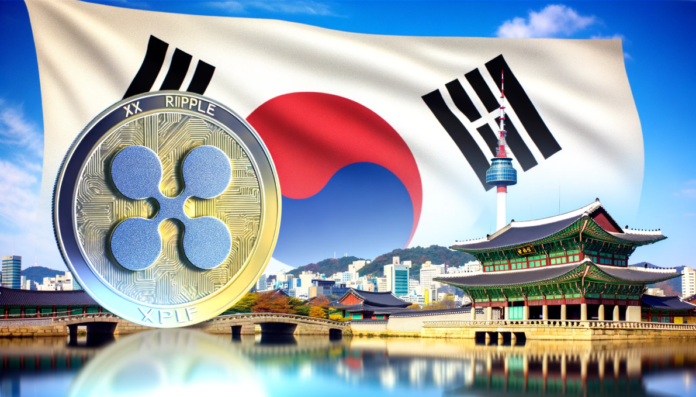- Approximately 10% of South Korea’s population owns XRP, indicating a significant shift in the country’s cryptocurrency preferences.
- Ripple’s strategic focus in South Korea includes advancing XRP Ledger (XRPL) through DeFi and gaming, leveraging its scalability and innovative features.
South Korea’s Crypto Revolution: XRP Takes Center Stage
In the dynamic world of cryptocurrency, South Korea emerges as a pivotal player, particularly in the adoption of XRP. A recent revelation by a Ripple partner has put the spotlight on the substantial inroads XRP has made in the South Korean market. This digital asset, known for its efficiency and lower transaction fees compared to its peers, is now the second most held asset on Bithumb, a leading South Korean exchange.
A Nation Embraces Digital Assets
Josh Kim, a key figure in promoting the XRP Ledger (XRPL) in South Korea, divulged in an upcoming interview with Crypto Eri some striking facts about XRP’s penetration in the country. Notably, around 10% of South Koreans, a staggering five million people, hold XRP. This figure not only underscores the growing appeal of XRP among South Korean investors but also highlights its dominance over other cryptocurrencies in the nation.
Kim also referenced government research indicating that South Korea accounts for a significant portion – at least 15% – of the global XRP circulating supply. Despite facing regulatory challenges, South Korea’s enthusiasm for XRP and XRPL remains high, with expectations of continued leadership in its adoption.
XRPL’s Strategic Integration in DeFi and Gaming
The interview with Kim further sheds light on the strategic initiatives underway to bolster XRPL and XRP adoption in South Korea. Central to this strategy is the identification and development of XRPL use cases that resonate with the needs and interests of South Koreans. Focusing on sectors like Decentralized Finance (DeFi) and gaming, which are rapidly evolving and influential in the country, Ripple aims to catalyze the integration of XRPL into these industries.
One such DeFi project on XRPL has already shown promising on-chain metrics. Furthermore, considering South Korea’s status as the fourth-largest gaming nation globally, the push to incorporate gaming developers into the XRPL ecosystem is a strategic move.
Kim hinted at the potential of XRPL’s scalability, particularly through sidechains like The Root Network. This innovation is expected to attract leading gaming IPs in the South Korean market by mid-year, marking a significant milestone in XRPL’s integration with mainstream industries.
In conclusion, the trajectory of XRP in South Korea paints a vivid picture of a nation rapidly adapting to the possibilities offered by cryptocurrencies. With strategic initiatives and a clear focus on sectors like DeFi and gaming, Ripple‘s efforts in South Korea are setting a precedent for the broader adoption of digital assets worldwide.



